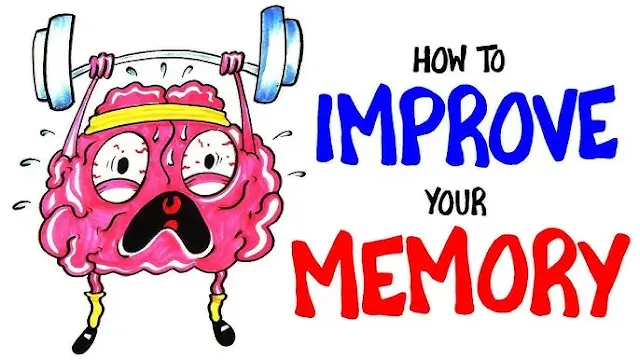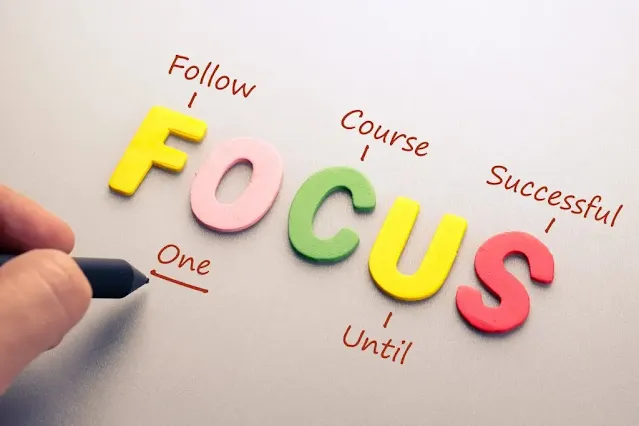Estimated Reading Time: 5 minutes
How to Improve Your Memory for Better Learning?
Improving memory is one of the most effective ways to enhance your ability to learn and retain information. Whether you're a student, a professional, or just someone looking to boost cognitive performance, a few simple strategies can make a big difference. This article will explore various techniques and tips that can help you sharpen your memory, making learning easier and more effective.
Why Memory Matters for Learning
Before diving into how to improve your memory, it's important to understand why memory plays such a crucial role in learning. Memory is the process by which we store, retrieve, and process information. The stronger and more efficient your memory is, the better you'll be able to absorb new knowledge and apply it effectively. Poor memory can lead to forgetfulness, lower academic performance, and a reduced ability to recall important details when needed.
Key Strategies to Improve Memory
1. Practice Active Learning
One of the most effective ways to enhance memory retention is through active learning. Active learning involves engaging with the material in a way that goes beyond passive reading or listening. Here are some active learning techniques:
- Teach someone else: Explaining concepts to others reinforces your own understanding and strengthens memory.
- Summarize information: After studying, write a summary in your own words. This reinforces the information and helps commit it to memory.
- Ask questions: Asking questions about the material helps you engage with the content more deeply, making it easier to remember.
Active learning promotes long-term retention by involving multiple areas of the brain, making the process of learning more effective.
2. Use Mnemonic Devices
Mnemonic devices are memory aids that help you recall information more easily. These techniques can be particularly useful for remembering lists, complex concepts, or sequences. Some common mnemonic devices include:
- Acronyms: Create a word from the first letters of the items you want to remember. For example, the acronym “PEMDAS” helps students remember the order of operations in math (Parentheses, Exponents, Multiplication, Division, Addition, Subtraction).
- Visualization: Visualizing information in the form of images or mental maps can help reinforce memory. Try to create a vivid picture of the concept you're trying to learn.
- Rhymes or songs: Turning information into a song or rhyme can make it easier to recall. Many people remember things better when they are put to music.
By using these memory tricks, you can make difficult information more accessible and easier to retain.
3. Enhance Your Focus
Focus is a critical element in memory formation. If you're distracted or multitasking, it's harder for your brain to store information effectively. Here’s how you can improve your focus:
- Limit distractions: When studying or learning, try to create an environment free of distractions. Turn off notifications, put your phone on silent, and focus solely on the task at hand.
- Take breaks: Studies show that taking short breaks during study sessions can improve focus and memory retention. Follow the Pomodoro Technique—study for 25 minutes, then take a 5-minute break.
- Mindfulness exercises: Mindfulness meditation and breathing exercises can help calm the mind, improve concentration, and boost memory retention.
By minimizing distractions and increasing focus, you’re allowing your brain to process and retain information more effectively.
4. Use Spaced Repetition
Spaced repetition is a proven method for improving memory retention. This technique involves reviewing information at increasing intervals over time. Rather than cramming all your study sessions into one sitting, you space them out to allow for better retention.
- Start with frequent reviews: After initially learning the material, review it after a day, then a week, and then a month. This spacing effect helps to consolidate the information into long-term memory.
- Use apps for spaced repetition: There are several apps available, like Anki and Quizlet, which use spaced repetition algorithms to help you review and retain information effectively.
Spaced repetition works by taking advantage of how our brains naturally forget information over time, allowing us to reinforce it before it fades completely.
5. Get Enough Sleep
Sleep plays a vital role in memory consolidation. During sleep, your brain processes and organizes information gathered throughout the day. Without proper sleep, your ability to recall information and learn new concepts can be significantly impaired.
- Prioritize quality sleep: Aim for 7–9 hours of sleep each night to help improve memory and learning.
- Sleep after learning: Research shows that taking a nap or getting a good night’s sleep after studying helps to reinforce the information you’ve just learned.
If you're struggling to learn or remember something, it might be time to reassess your sleep habits.
6. Stay Physically Active
Physical activity has been shown to have a positive impact on memory and cognitive function. Exercise increases blood flow to the brain, promotes the growth of new brain cells, and enhances overall mental performance.
- Exercise regularly: Aim for at least 30 minutes of moderate-intensity exercise a few times a week.
- Try brain-boosting activities: Activities like yoga, tai chi, or even walking can improve memory and focus.
Incorporating regular exercise into your routine can enhance your brain's ability to process and retain information, which is crucial for better learning.
Healthy Diet for Memory Enhancement
What you eat also has a significant impact on your brain’s ability to function. A healthy, balanced diet can improve cognitive performance and memory.
- Eat brain-boosting foods: Foods rich in antioxidants, omega-3 fatty acids, and vitamins can support brain health. Include fatty fish (like salmon), blueberries, nuts, seeds, and leafy greens in your diet.
- Stay hydrated: Dehydration can impair cognitive function, so be sure to drink plenty of water throughout the day.
- Limit processed foods: Highly processed foods can have negative effects on brain function, so try to avoid too much sugar, trans fats, and refined carbohydrates.
By nourishing your brain with the right nutrients, you give it the tools it needs to enhance memory and learning.
Leverage Technology to Boost Memory
In today’s digital age, there are countless tools available to help you improve memory and learning. Some options include:
- Memory apps: Apps like Lumosity, BrainHQ, and CogniFit provide fun and interactive ways to train your memory.
- Audio and video aids: Listening to podcasts or watching educational videos can reinforce what you’ve learned.
- Digital flashcards: Platforms like Anki or Quizlet allow you to create digital flashcards for spaced repetition and quick recall.
Technology can be an excellent support system in your efforts to improve memory, providing both structure and variety in your learning methods.
Improving your memory for better learning requires a multifaceted approach that includes active learning techniques, mnemonic devices, focus-enhancing strategies, good sleep, physical activity, a healthy diet, and leveraging technology. By incorporating these memory-boosting strategies into your routine, you can drastically improve your learning capabilities and retain information more effectively.
Remember that memory improvement is a gradual process, and consistency is key. Stick to these tips, and over time, you’ll notice significant improvements in your ability to learn, retain, and apply knowledge.
FAQs
1. How does active learning improve memory retention?
Active learning enhances memory retention by engaging the brain in more meaningful ways. Techniques like summarizing information in your own words, teaching others, or asking questions help reinforce the material, making it easier to remember. This active engagement promotes long-term retention because it involves multiple areas of the brain, strengthening neural connections.
2. What are mnemonic devices, and how can they help with memory?
Mnemonic devices are memory aids that help you recall information more easily. They include techniques like acronyms, visualization, and rhymes. For example, creating an acronym like "PEMDAS" helps remember the order of operations in math. These devices make complex or abstract information easier to retain by associating it with something simpler or more memorable.
3. Why is sleep important for memory and learning?
Sleep plays a critical role in memory consolidation, where the brain processes and organizes information gathered during the day. Adequate sleep (7–9 hours per night) enhances recall and helps solidify newly learned concepts. Research shows that sleeping after studying improves the retention of information, making it essential for optimal learning.
4. How can regular physical activity boost memory?
Regular physical activity increases blood flow to the brain, supports the growth of new brain cells, and enhances overall cognitive function. Activities like yoga, walking, or aerobic exercise have been shown to improve memory, focus, and learning ability. Incorporating physical activity into your routine can boost mental performance and help with information retention.
Reference Source:
https://www.helpguide.org/aging/healthy-aging/how-to-improve-your-memory
https://www.youtube.com/watch?v=JbLAGpQ9RXg
https://learningcenter.unc.edu/tips-and-tools/enhancing-your-memory/








